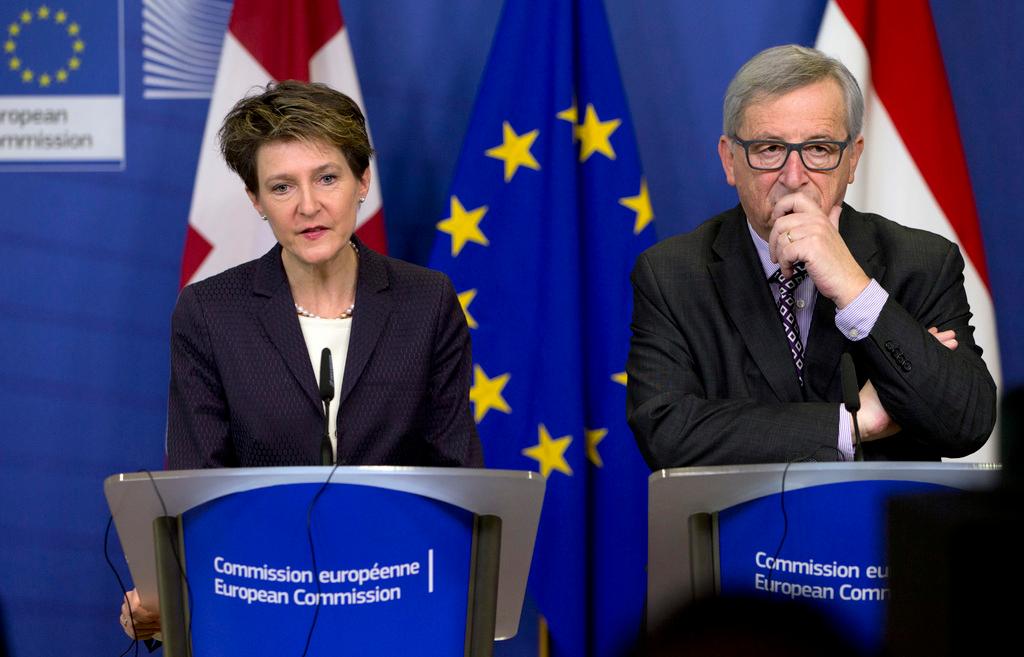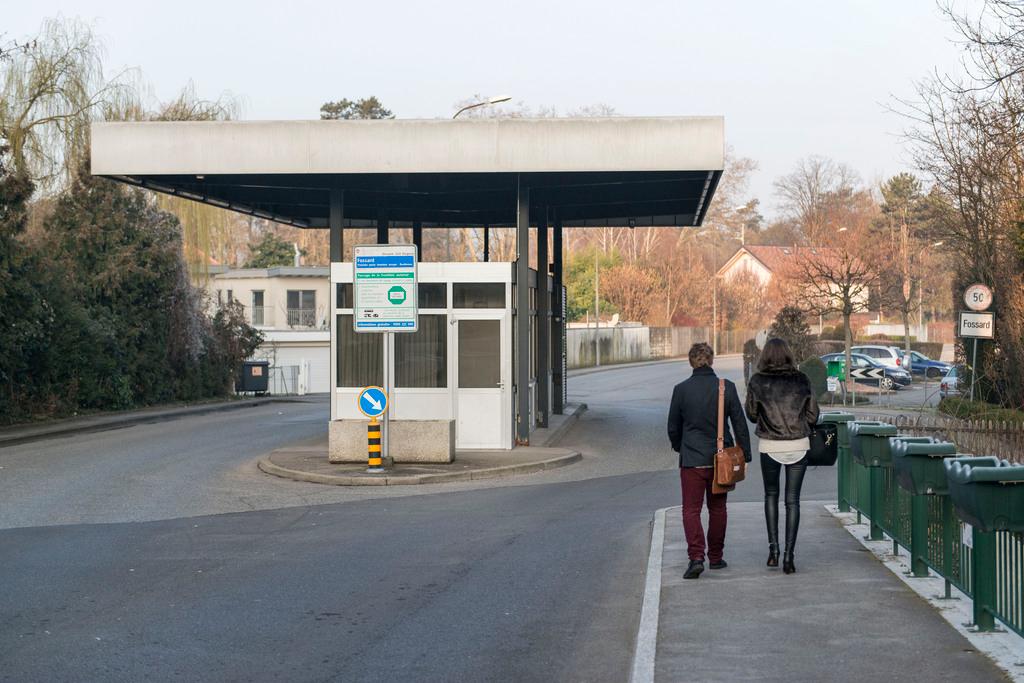Strict enforcement of initiative rejected

Parliament sought to avoid a potentially damaging confrontation with Brussels by signalling its support for a watered-down version of immigration restrictions on European Union citizens.
The House of Representatives on Wednesday showed its preference for a “light” version of the people’s initiative approved in 2014 calling for the re-introduction of annual immigration quotas. This version is aimed at keeping peace with the EU by preserving economic treaties but alleviating some of the foreign pressure on the Swiss job market.
Under the compromise House plan, preference for Swiss residents would be granted under certain conditions. After several hours of heated debate, the House voted overwhelmingly, by a 2-to-1 margin, to refuse to refer the controversial initiative to a parliamentary committee. The referral would have meant that implementation must be consistent with the text approved by 50.3% of Swiss voters 30 months ago.
Wednesday’s vote could buy more time for Switzerland, which does not belong to the EU, to try to work with the European Commission on negotiating a deal to allow EU citizens to continue to move freely in exchange for retaining enhanced Swiss access to the EU single market.
Strong reactions
The rightwing Swiss People’s Party, which sponsored the people’s initiative, had been calling on parliament to impose even stricter measures than what voters approved. It decried lawmakers’ vote.
“It is the death of direct democracy,” said Adrian Amstutz, a senior member of the House of Representatives for the People’s Party and of the initiative committee.
However, Kurt Fluri, a lawyer and member of the House of Representatives for the centre-right Radical Party, said the “light” version would preserve the Swiss-EU bilateral accords but also limit EU leverage on Switzerland.
“We would be freed from the pressure that the EU wanted to exert on us,” Fluri, who authored the compromise version, told parliament.
The Swiss business federation, economiesuisse, which represents companies that employ more than two million people in Switzerland, said it was pleased by the outcome in the House. The decision by the House, it said, will enable Switzerland to set its own priorities while still allowing for “EU-acceptable remedies” if needed.
“It is now up to the Senate to present possibly more effective measures,” the federation said in a statementExternal link, adding that those measures must focus on a method of implementation that “remains economically acceptable and retains the bilateral agreements with the European Union”.
Government dilemma
Justice Minister Simonetta Sommaruga, speaking for a government that had opposed the initiative, described the situation as a great dilemma of Swiss politics.
On the one hand, the country risks breaking international accords with the EU, she said. On the other hand, it risks subverting a national vote. “What we can rule out today,” she told parliament, “is finding a mutually agreed solution with the EU that will allow us to fully implement our constitutional initiative.”
The Senate, the other parliamentary chamber, is likely to discuss the bill during the regular winter session in December. The authorities have until February to implement the requirements of the initiative.
There is also an initiative pending which calls for a new nationwide vote, effectively revoking the 2014 ballot.
Uncertainty
The result of the February 2014 vote on a constitutional amendment has strained relations between Switzerland and the 28-nation EU bloc, which has repeatedly stressed that the free movement of people is a fundamental policy tenet.
There are concerns that any attempt by Switzerland to undermine this principle could lead to Brussels cancelling a set of seven treaties, in force since 2002, regulating labour, trade, transport, procurement and research.
They give the Swiss private sector access to a single European market with more than 500 million potential consumers.
The latest top-level meeting between Swiss President Johann Schneider-Ammann and EU Commission Jean-Claude Juncker on Monday failed to break the impasse.
Brussels reportedly wants to link negotiations on immigration curbs to an institutional accord governing the bilateral ties with Switzerland, including more than 120 sectoral treaties.

In compliance with the JTI standards
More: SWI swissinfo.ch certified by the Journalism Trust Initiative














You can find an overview of ongoing debates with our journalists here . Please join us!
If you want to start a conversation about a topic raised in this article or want to report factual errors, email us at english@swissinfo.ch.